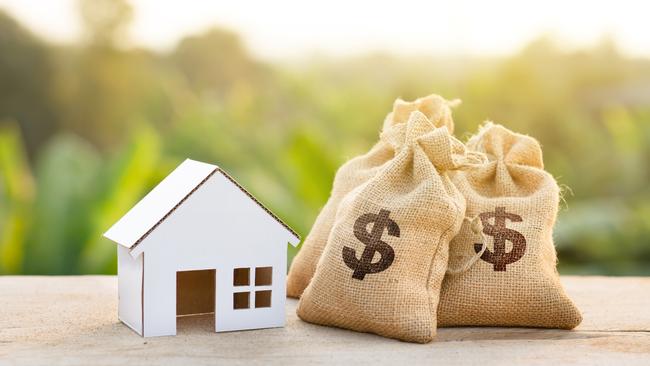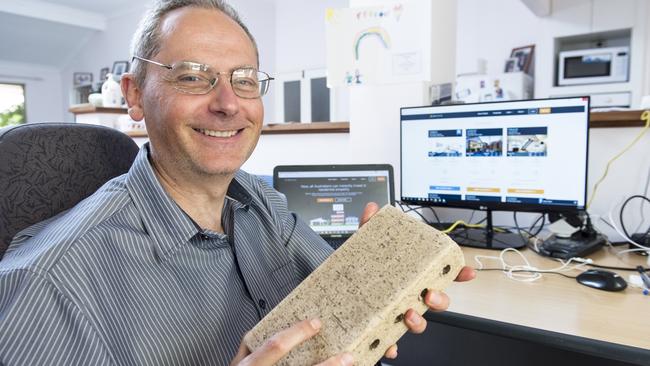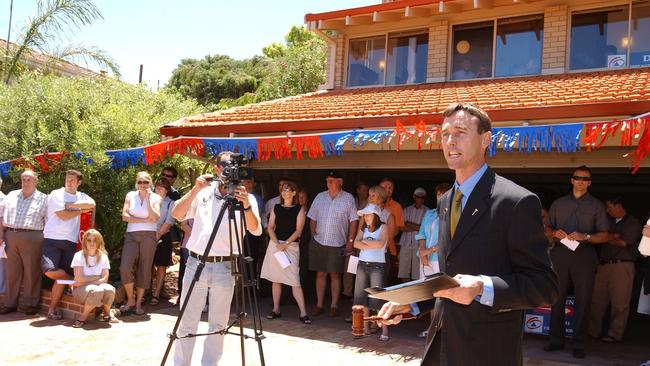Real estate investing: How to make money in property without owning home or mortgage
Forget paying a deposit and a loan, here’s how you can make money in property without owning a home.

Property
Don't miss out on the headlines from Property. Followed categories will be added to My News.
The great Australian dream is to own a home, and make a bit of money out of it as the market inevitably rises.
But for those who do not have a property in their name, there is still plenty of ways to earn a buck.
From fractional investment to filming auctions or even hitting up social media, here is how to make a motza in real estate without the debt.
RELATED: How to get your kids out of the house and into the property market
Cost of living Australia: How to make extra money out of your home
Almost half of Aussie parents fear kids will never afford a home
INVESTING
Being a landlord is hard and expensive, but what if you could throw some spare cash at a property and let someone else handle the maintenance and paperwork?
Welcome to the world of fractional investing and Real Estate Investment Trusts.
The latter has been investing in Australian properties since the 1970s and is a publicly listed trust in which an investment manager uses funds from backers to buy office towers, shopping centres and industrial sites. The investors are paid dividends and can sell their stake in the trust (hopefully for a profit), much like a regular share portfolio.

Fractional investment sees a group of funders combined to buy a single asset, typically a house or apartment. They then receive a proportion of the capital growth when it is sold, and rental returns in the interim, based on how much of the initial investment they put up.
BrickX chief executive Joe Galvez has been running his fractional investment group since 2014 and said while investors were also responsible for “their proportionate share of expenses”, with a manager in place they did not have to handle day-to-day dealings with tenants.
Mr Galvez noted many similar groups had a $2500 or even $25,000 minimum investment, but some such as BrickX would let investors open accounts with $250 and then to invest in a specific property for as little as $32.
“This form of investment is helpful to a whole range of investors ranging from minors, where family wish to gift fractions of property in lieu of presents, through to young adults seeking to educate themselves,” he said.
“Our aim is to be the bridge between the dream and the reality of home ownership one day.”
Some people also use it as part of their self-managed super fund.
BECOME AN AGENT
If you are obsessed with your local property market there is an obvious way to make a living out of it – become a real estate agent.
However, Real Estate Institute of Australia president Hayden Groves warned against entering the field without due diligence as agencies were looking for staff who could justify their retainer quickly and would not need to be removed if they did not.

“The attrition rate remains high with only about 10 per cent of newcomers still in the industry after the first 12 months,” Mr Groves said.
Testing the water as a sales assistant for an agent so you can learn the trade is advisable, and could help you become established in a particular area – something that takes “hard work and tenacity”.
“And it only suits people who can handle rejection,” he said.
“Many will be surprised the average earnings of a sales agent in Australia are about $60,000 per annum, but the job does come with a great degree of flexibility.”
WORK THE FRINGES
If being an agent is not for you and you do not have the money to invest, there are plenty of ways to make some money on the fringes of the industry.
Online auction group Gavl’s chief executive Joel Smith estimated a quarter of sales under the hammer were now streamed live online.
While that might mean a fairly limited number in Brisbane and Adelaide, in Melbourne and Sydney it’s about 200-300 a week. “And I think over time that will grow,” Mr Smith said.

While groups such as Gavl had hired large numbers of video staff before the pandemic, today real estate agencies typically organise their own cameraperson.
“It’s usually not a full-timer, it’s a uni student looking for a bit of Saturday work on the side,” Mr Smith said.
The key requirements are a smartphone with a reliable internet connection and a tripod.
And it’s not just the tech savvy who can cash in. Mr Groves said there were plenty of people paid to clean short-stay rentals, while tradies and anyone who was handy could often get a gig dealing with minor issues at rental homes or for homes being prepared for sale.
“And certainly many, especially younger people, are attracted to the idea of being involved in real estate businesses by doing such tasks as letterbox dropping, dealing with signboards, ordering marketing materials and the like,” he said.
Sign up to the Herald Sun Weekly Real Estate Update. Click here to get the latest Victorian property market news delivered direct to your inbox.
MORE: Teacher’s bank hack gets her 3 homes that cost ‘nothing’ to own
Surfers Paradise mansion left empty for a year is back on the market
Crazy glass box property hanging off the side of a Peruvian cliff listed on Airbnb


